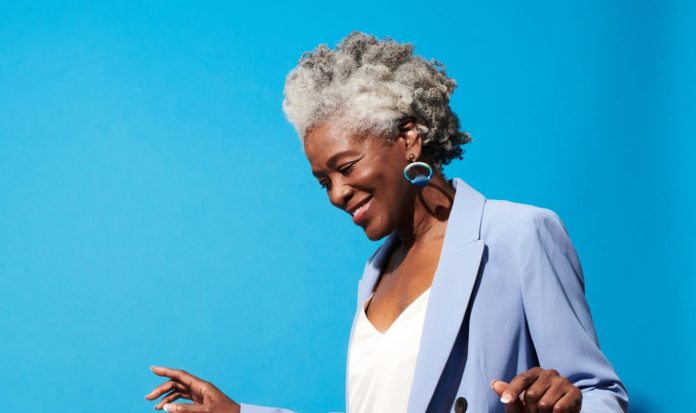You may be combing through your hair when you first notice a small but present silver strand peeking through.
Whether we like it or not, finding a grey hair is inevitable for all of us. Rather than asking ourselves if we’ll get it, the curiosity lies behind why we get it and what we can do to delay it.
A study published on Wednesday may have answered why our hair turns grey as we age.
Researchers at NYU Grossman School of Medicine studied melanocyte stem cells in mice — a type of cell that’s also found in humans — and discovered that these cells may eventually get “stuck” as one ages, eventually losing the ability to move between growth compartments in hair particles and produce the pigment that provides hair color.
If this result is also applicable to humans, researchers are hopeful it could lead to the discovery of a way to prevent hair from losing its youthful hue.
“The newfound mechanisms raise the possibility that the same fixed-positioning of melanocyte stem cells may exist in humans,” Qi Sun, the study’s lead investigator, said in a press release.
Stress, diet, vitamin B-12 deficiency can contribute to ageing and subsequent growing of grey hair
“If so, it presents a potential pathway for reversing or preventing the greying of human hair by helping jammed cells to move again between developing hair follicle compartments.”
Experts say greying can range from our mid-30s to mid-40s, based on race and ethnicity; and that stress, diet and certain illnesses like a vitamin B-12 deficiency or autoimmune diseases can contribute to ageing and subsequent growing of grey hair.
A group of researchers at Columbia University Vagelos College of Physicians and Surgeons found quantitative evidence to confirm the age-old suspicion that psychological stress and graying were related.
The researchers analyzed over 397 individual strands of hair from 14 healthy volunteers that ranged in age from 9 to 65. All individuals had not used any hair dye or chemical treatments to color their natural hair but had self-identified as having some grey or two-colored hair strands.
A high-resolution scanner captured images of their locks and it detected small, subtle variations in color that were otherwise invisible to the naked eye. The results were then compared to each volunteer’s stress diary, which included calendars, as well as their week’s level of stress.
Researchers were shocked to find that by eliminating stressors, the grey hairs reversed or returned to their original color.
Of the participants, 10 saw this reversal and took active measures to reduce stress, like going on vacation or resolving a tense event.
While reducing stress is ideal for your hair and health, it won’t guarantee a reversal to your normal color.
Turns out, hair re-pigmentation is only possible for some because your hair needs to reach a certain threshold for reversal to be successful. This is largely because of biology.
When we are in middle age, the hair is nearing its biological age to turn grey. According to the study’s findings, if stress is reduced at this time, the process is more likely to be reversed, or at least halted, rather than when you’ve had greys for years.


